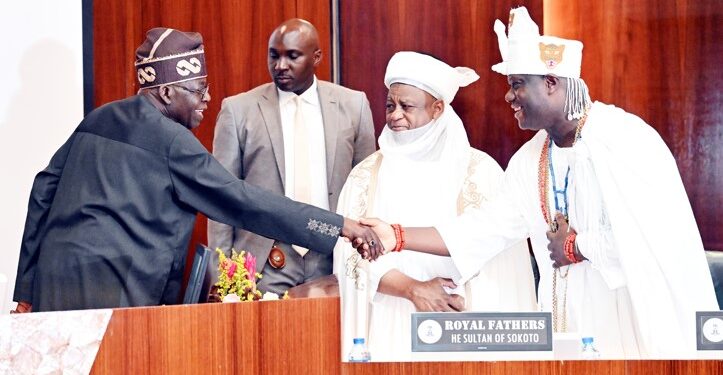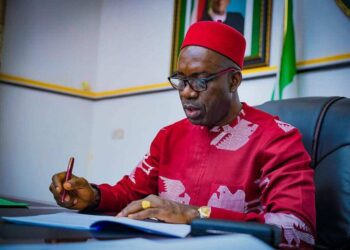The apex Igbo socio-cultural organization Ohanaeze Ndigbo Worldwide has strongly criticized a Senate bill seeking to permanently install the Sultan of Sokoto and Ooni of Ife as co-chairmen of Nigeria’s National Council of Traditional Rulers.
In a statement released Sunday by National Publicity Secretary Dr. Ezechi Chukwu, the organization denounced the legislation as discriminatory and a violation of constitutional principles governing fairness and federal character representation.
The controversial bill, which has already advanced through second reading in the Senate, would formally elevate these two traditional rulers to permanent leadership positions within the national council, effectively institutionalizing their authority over other monarchs across Nigeria.
Ohanaeze expressed shock at what it described as the Senate’s “utter disregard for fairness, equity, justice and the principle of federal character, as enshrined in the Nigerian Constitution.” The organization argued that such legislation marginalizes other ethnic nationalities and undermines democratic governance principles.
“The Senate in this vein has failed in its capacity as the highest legislative carrier and custodian of the nation’s democratic mandate,” Chukwu stated, characterizing the upper chamber’s approach as fundamentally flawed.
The Igbo organization described the proposed law as “inequitable, discriminatory and ethnocentric,” arguing that it fails to meet ethical and constitutional standards required in Nigeria’s diverse, multi-ethnic society.
“This bill is not only inequitable, discriminatory and ethnocentric, it is equally distasteful, reprehensible and objectionable,” Chukwu declared, emphasizing the depth of his organization’s opposition to the legislation.
Ohanaeze called for immediate withdrawal of the bill, warning that its passage could seriously damage national cohesion and unity. The group argued that the legislation lacks the objective metrics and unbiased categories necessary for promoting social justice in a pluralistic nation-state.
The organization urged senators to reconsider the bill with proper attention to Nigeria’s ethnic diversity, cultural sensitivity, geopolitical balance, and inclusive governance requirements.
“It is only by so doing shall the bill foster national unity, peaceful co-existence and social stability,” the statement concluded.
The proposed legislation has generated significant controversy beyond Igbo circles, with critics arguing that permanent elevation of the Sultan and Ooni disregards the important roles played by first-class traditional rulers from the South-East, South-South, and Middle Belt regions.
While supporters contend the bill would provide necessary structure and continuity to the traditional council’s leadership, opponents view it as institutionalizing ethnic favoritism without achieving nationwide consensus.
The debate highlights ongoing tensions over regional representation and power distribution within Nigeria’s federal system, particularly regarding the recognition and elevation of traditional institutions across the country’s diverse cultural landscape.




















